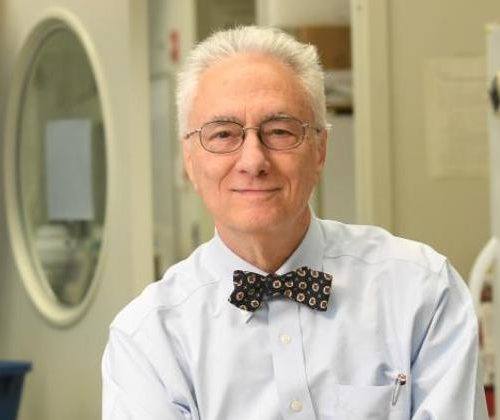In this episode, Dr. Rudy Leibel, an expert in Clinical Molecular Genetics and Genomics at Columbia University, discusses his role in the remarkable scientific story of discovering leptin. He also gets into the genetics of obesity, as well as a broader discussion of the causes and effects of obesity, energy expenditure, and metabolism.
Subscribe on: APPLE PODCASTS | RSS | GOOGLE | OVERCAST | STITCHER
We discuss:
- Rudy’s background, interest in obesity, and trying to understand the role and impact of adipose tissue [4:15];
- Finding the first evidence of leptin by studying obese mice [23:30];
- Zucker rats, and the push/pull theories of obesity [34:45];
- A breakthrough in obesity research, and closing in on leptin [45:45];
- Understanding leptin in humans [1:03:30];
- What Prader–Willi syndrome teaches us about body weight regulation [1:09:45];
- Leptin and the broad condition of obesity, metabolic consequences of weight reduction, and Peter’s self-experiments [1:18:00];
- How is appetite being regulated? [1:29:45];
- Are there epigenetic consequences of being obese? [1:37:00];
- What makes low-carb diets so effective at obesity reduction? [1:46:15];
- What did Rudy believe 10 years ago that he no longer believes to be true? [1:55:15];
- Rudy’s dream study of the FTO gene [1:57:15];
- What the hell does insulin resistance actually mean? [2:08:30]; and
- More.
Get Peter’s expertise in your inbox 100% free.
Sign up to receive An Introductory Guide to Longevity by Peter Attia, weekly longevity-focused articles, and new podcast announcements.
Would you like access to extensive show notes and references for this podcast (and more)?
Check out this post to see an example of what the substantial show notes look like. Become a member today to get access.

Rudolph Leibel, M.D.
Dr. Leibel’s research focuses on the genetics of obesity and noninsulin-dependent diabetes. His laboratory has mapped, cloned, and identified mutations in the obese and fatty genes in rats, mice, and, more recently, in humans. The obese gene encodes leptin, an adipose derived hormone responsible for regulating body weight, whereas the fatty gene encodes the leptin receptor. Currently, his research group is defining the physiological bases by which this and related signaling networks regulate body size and composition. For example, changes in leptin production following reduction in body fat might play a role in the metabolic changes that accompany weight loss in humans. Dr. Leibel’s laboratory is also working to isolate additional rodent genes that influence body weight and the susceptibility to noninsulin dependent diabetes mellitus in the context of obesity. Laboratory members have extended their genetic studies to search for similar obesity and diabetes related genes in human families. [columbia.edu]



